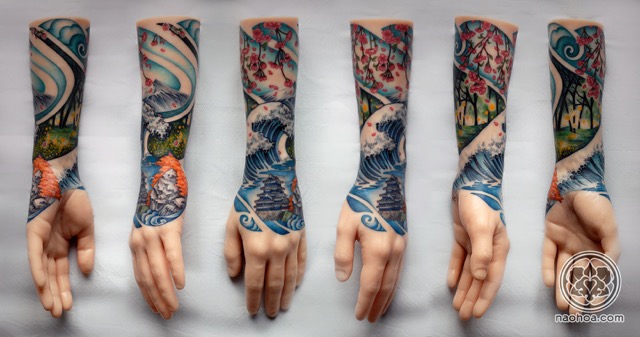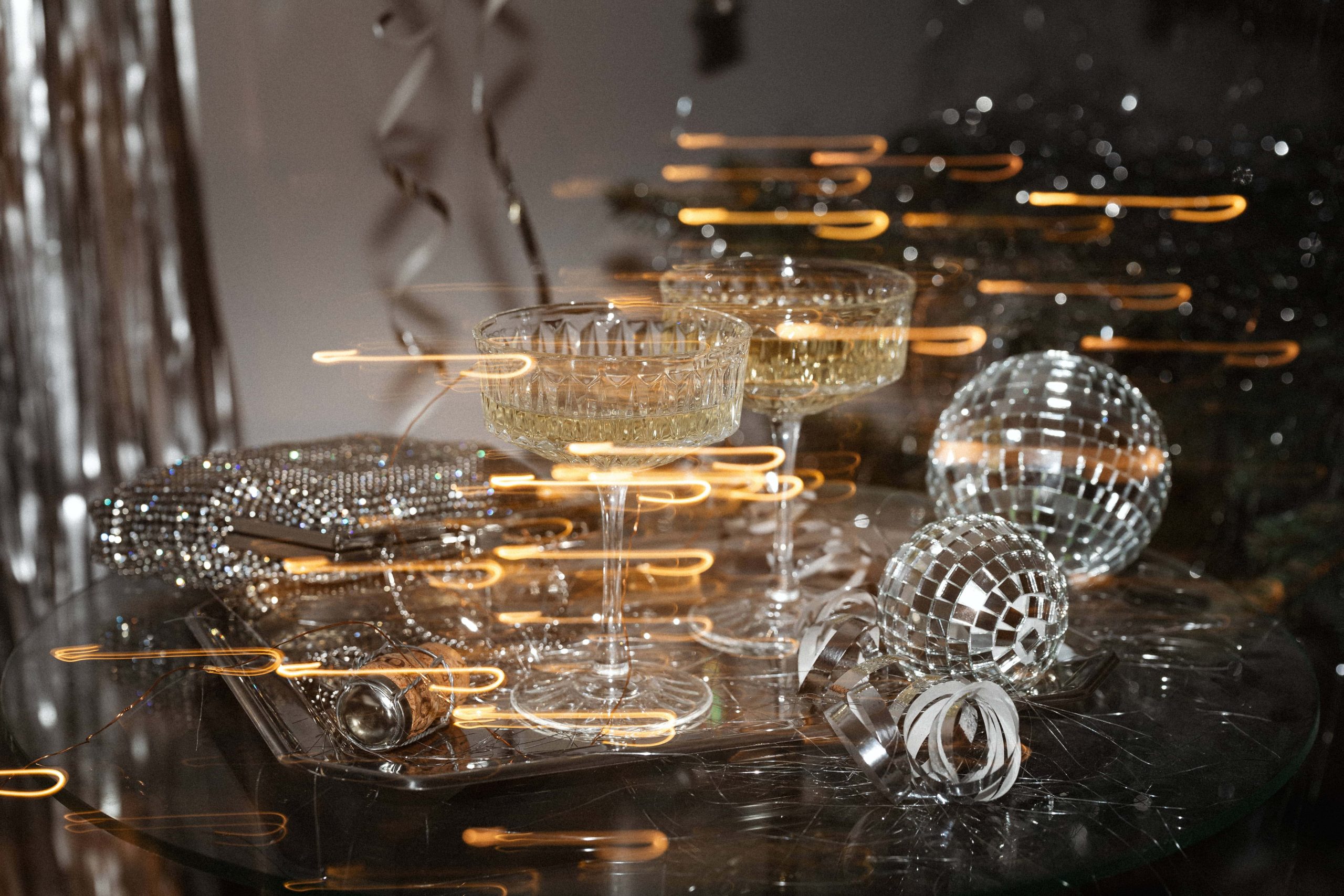Cardiff Artist ÔÇô Naomi Hoang
By Emily Ricalton
Introduction
As a section, Quench Fashion has decided to create a series piece all about the tattoo industry, with a special focus upon women within this industry. Due to the huge popularity of this series, we decided to expand both our pieces online and in print issues of Quench Fashion.
In this online article, Quench Fashion look into the tattoo industry within our own Welsh city of Cardiff, being fortunate enough to interview the female artist, Naomi Hoang, for this particular feature.
Naomi currently works in City Road at her own tattoo studio, NAOHOA (ÔÇÿnaya-howa’) Luxury Bespoke Tattoos, which is located inside Susan’s Salon ÔÇô a hair and beauty shop. All the inks and treatments used in Naomi’s studio are classified as vegan and organic, making them environmentally sustainable and suitable for the declining safety of our natural world.
In an interview with this extremely inspiring artist, we discussed Naomi’s vision within the tattoo industry, focussing in on the impact that she has had upon this industry, not only as a woman, but a diversion from the stereotypical individual involved within the usual associations with tattooing. As well as this, we also discussed the reasons as to why she first took steps towards this chosen career path, and what this decision to become a tattoo artist has meant to her as an individual creator of unique body art pieces.
QUENCH FASHION: When and how did you get into the industry of tattooing? Why did you become interested in it?
NAOMI: During 2014, I took a break from work, after having left my previous career as a Concept Artist in the gaming industry. I applied for jobs as a freelance artist for Children’s Book and Fashion, but struggled to land anything consistently. I even toyed with the idea of becoming a Graffiti Artist! After having my own tattoo (that I designed in 2011), tattooing seemed like a feasible option, given my background in Fine Art and Graphic Design.
Initially, I was meant to be the apprentice of the person who did my tattoo, but things didn’t work out and we went our separate ways. I started practising at home, using silicone arms and watching DVD’s said artist lent me. Having seen a gap in the market for people like me, who don’t fit into the tattoo stereotype, I attended business classes and set up NAOHOA (ÔÇÿnaya-howa’) in July 2015. Having worked as an artist in large companies in a corporate setting, the idea of working one-to-one with clients directly sounded more appealing and rewarding.
QUENCH FASHION: What does tattooing mean to you? Is it an art form or a form of expression for you?
NAOMI: Personally, I like my own tattoos to mean something. Whether it’s a nod to my past or a grounded reminder of my present state ÔÇô I prefer to have a deep connection to them. For others, it’s entirely up to them. Some get body art for profound reasons and others simply like the aesthetic, and they’re both perfectly valid reasons. So long as it’s for them and not others; I think people are less likely to regret their tattoos later. I’m here to execute their vision, not judge them.
QUENCH FASHION: How does it feel to have your work tattooed on other people?
NAOMI: I honestly don’t think about it much. In my mind, it’s all about them, not me. It’s their body, idea and piece ÔÇô I’m just here to make it happen.
I definitely find it an honour to be part of people’s journey and seeing their faces light up when they have a piece of art they’ve been longing for ÔÇô it really makes my day. Most of my clients get inked for sentimental reasons, so the trust they put in me is truly precious and I respect it wholeheartedly.
QUENCH FASHION: What is it like being a woman within the industry? Are there any differences between men and women within tattooing?
NAOMI: Having come into the industry from a completely different background with pretty much no contact with other tattoo artists, I can’t tell! Especially since I set up my own business, rather than going through the traditional apprentice route.
There have been situations in the past where I’ve encountered artists of both genders and unfortunately, they’ve not always been favourable. Being a woman in a male-dominated industry is one thing, but being one who also doesn’t fit the mould has made me feel like more of an outcast than usual. I’m not covered in ink or piercings and don’t have bright hair, so perhaps they don’t take me seriously or realise I’m a Tattoo Artist. I’ll admit it’s been a lonely path, but my clients and support network have kept me going and continually reaffirm that what I’m doing is right. Not fitting that mould is what NAOHOA is all about and I’m very grateful for their support.┬á
QUENCH FASHION: How do your tattoos make you feel? For example, are they empowering? 
NAOMI: I believe that tattoos are a form of self-expression that make you unique. Most have a story behind them and if they don’t, the style the wearer has opted for will at least inform others of their taste in art. They’re all ways to share information: a reminder, a memory or a statement for yourself and, if on show, to others. Much like our outfits and haircuts, tattoos are a visual way to express our personalities.
My own tattoo is a reminder of my journey through recovering from Depression, and that it’s all behind me now (hence it being on my back). The lotus is a symbol of overcoming adversity, growing through the darkness and emerging to the surface where it blossoms, seemingly unscathed by its path. I’d like to extend it along my right arm (because I’m right-handed) with a dragon, as that’s my Chinese Zodiac. I don’t believe in astrology, but dragons are fierce and I want it as a reminder that I can overcome anything once I put my mind to it.
QUENCH FASHION: What’s it actually like to be a tattoo artist? Can it be challenging or restrictive?
NAOMI: In the early days, it can be quite scary! With a few years under my belt, I’ve grown comfortable with the role and humbled with its goal to include art in people’s lives. The Arts are so important in maintaining our mental and spiritual well-being. Given how overloaded our lives have become, I feel like it’s more important than ever to remember and encourage that.
Technically speaking, there can be restrictions such as space, skin types and working over or around existing tattoos or old scars, but I don’t fret about those things. I’m quite comfortable with tattooing, as it’s much like traditional painting. Art has been in my life since the age of 4, so it’s very much second natureÔǪ it’s the business side that overwhelms me sometimes! Admin, marketing, strategies and the like are very time-consuming and in a way, unpaid. The only times I have an income are when I take in deposits or tattoo people, so those fees need to cover all the time and expenses of running the business as well as the designing and tattooing itself.
QUENCH FASHION: What are your plans for the future within tattooing? Are there any changes you would like to see in the industry or in your own work?
NAOMI: I need to take on staff to lift the load from my shoulders, but have yet to find people who not only have the technical skills but also share the same values of the brand and culture. I don’t intend on running NAOHOA like other studios and need people I can trust and rely on to help me grow it.
The industry itself is barely regulated in the UK. I’m not sure if this is due to staff/financial restrictions or simply not seeing it as a high enough priority, but I feel greater safety measures need to take place to ensure that customers are equally safe, no matter which studio they attend. Many clients point out the cleanliness of my studio as if it’s an exception when it should absolutely be the norm. Not just cleanliness, but for the well-being of staff- especially apprentices, who often go unpaid. I’ve heard some atrocious stories of misconduct at other studios that would not be tolerate in other fields.
QUENCH FASHION: What opportunities has this industry given you as an artist?
NAOMI: I love hearing people’s stories and different perspectives on life ÔÇô they’re fascinating and help broaden my horizons as a person (as well as theirs, sometimes!). All the work outside of tattooing can be lonely and hum-drum, but chatting away at the chair and seeing their reactions at the end makes it all worthwhile.
People from all walks of life come here and are generally super lovely. There’s something about working with people directly and building a connection that makes the job so much more rewarding.
QUENCH FASHION: What changes would you like to see in the tattoo industry as a woman?
┬áNAOMI: Like many male-dominated industries, women often find entering such fields intimidating. I’m quite a strong-willed person, though I imagine those who are less so might be missing out because they don’t feel safe enough to test the watersÔǪ and the industry in return loses such opportunities to have more diversity in the workplace. No matter what profession, the more varied the voices behind them, the stronger the service or product can be.
As with many creative roles, the lack of financial security is a huge factor in not pursuing them. There are some government support options for hiring apprentices or young people, but they’re limited and very specific. Also, art schools simply aren’t preparing students for the real world of working commercially, nor teaching them basic job-seeking or soft skills required to maintain a role. For a long time, the Arts were shunned and labelled as, ÔÇÿnot a real job’, so I feel that the overall standard of education and financial support to be lacking. Attitudes are changing, but I’m not convinced the structure is in place to support that yet.
Again, having entered this industry though unusual means, I can’t speak for other women in the field of what it’s like overall of what improvements other studios need to make it easier. NAOHOA has a very calm and professional environment, so I don’t think they’d encounter issues I’ve heard elsewhere. Given my position, I’m more concerned about finding the right people to complement and enhance the space so it can grow as a brand.
Even though Naomi can design and tattoo in a variety of different styles, she tends to specialise in both fine line and watercolour tattoos, making her work exemplify a bohemian quality that screams detail and elegance. Her, as described on her social media pages, upmarket tattoos have a personal quality where all designs made suit your own specific style and look, making your tattoo your own. And, well I believe so anyway, there is no better tattoo design than one that fits you as an individual.
This Cardiff-based artist is definitely one that you need to check out, especially if you’re interested in exotic designs that can help to develop and progress you as a person. Naomi is definitely an interesting female artist, one of which can help to inspire us all within both our personal and working lives. She is obviously a charismatic person, somebody who would be an excellent choice when choosing someone to be tattooed by.
Naomi Hoang’s details, social media pages and website will be attached below, so follow the links if you might be interested in receiving a tattoo by this particular female artist.
Naomi Hoang, Owner and Tattoo Artist ÔÇô NAOHOA Luxury Bespoke Tattoos:
Illustrator and Concept Artist:
Instagram: https://www.instagram.com/naohoa/
(NAOHOA)
Facebook: https://www.facebook.com/naohoa.uk/
(NAOHOA)






